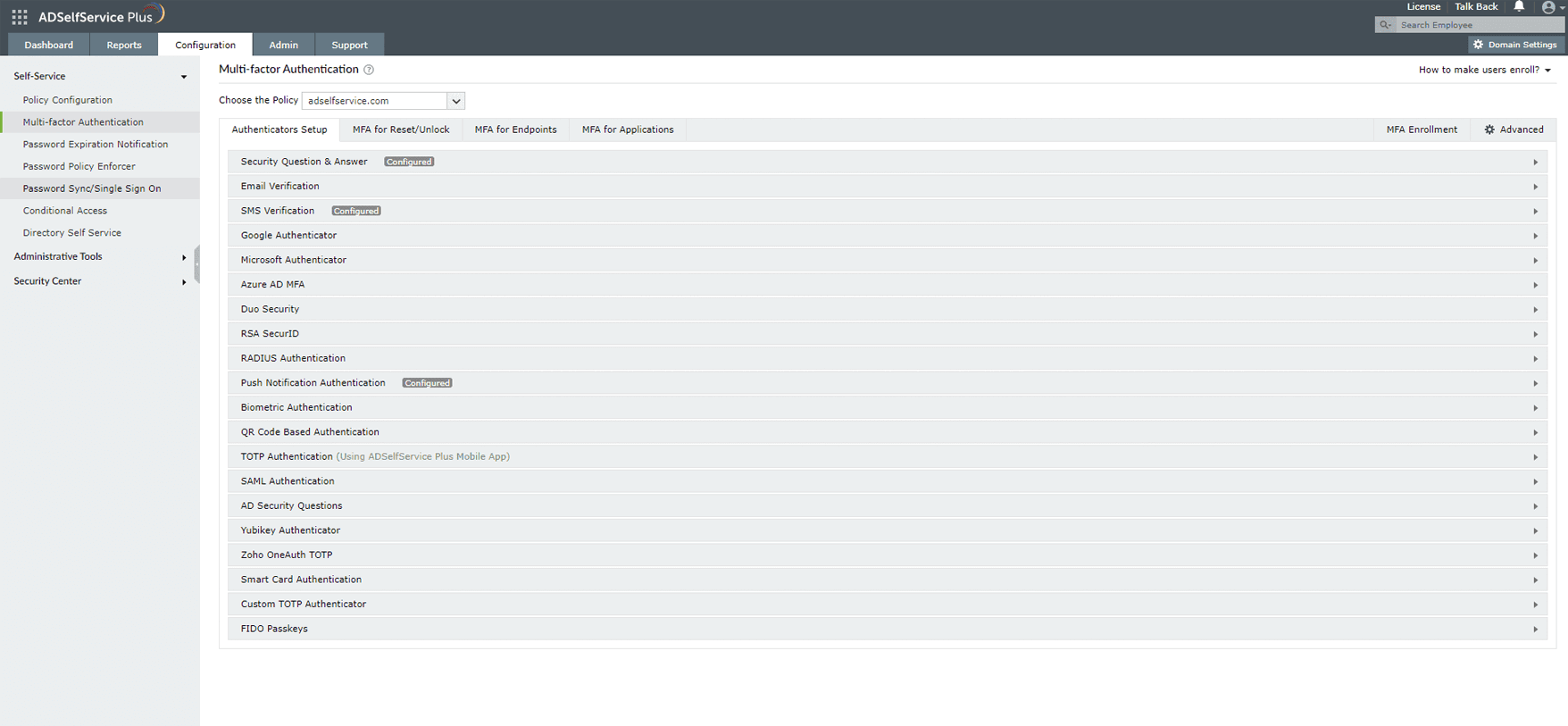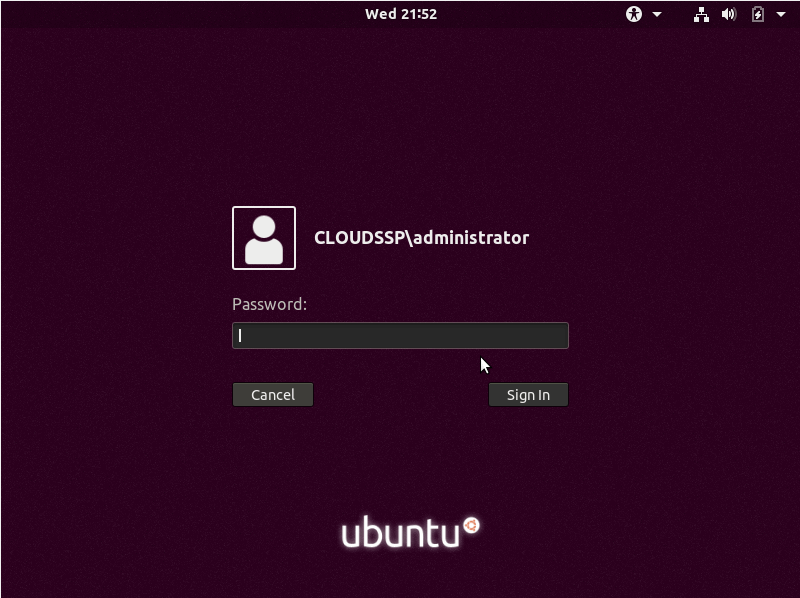- Free Edition
- Quick Links
- MFA
- Self-Service Password Management
- Single Sign-On
- Password Synchronizer
- Password Policy Enforcer
- Employee Self-Service
- Reporting and auditing
- Integrations
- Related Products
- ADManager Plus Active Directory Management & Reporting
- ADAudit Plus Real-time Active Directory Auditing and UBA
- Exchange Reporter Plus Exchange Server Auditing & Reporting
- EventLog Analyzer Real-time Log Analysis & Reporting
- M365 Manager Plus Microsoft 365 Management & Reporting Tool
- DataSecurity Plus File server auditing & data discovery
- RecoveryManager Plus Enterprise backup and recovery tool
- SharePoint Manager Plus SharePoint Reporting and Auditing
- AD360 Integrated Identity & Access Management
- Log360 (On-Premise | Cloud) Comprehensive SIEM and UEBA
- AD Free Tools Active Directory FREE Tools
The need to protect Linux logins
Nine out of the top 10 public clouds run on Linux, per the State of Linux report. Top-notch architecture and compatibility make the Linux OS a popular choice for IT professionals when handling critical workloads in cloud computing environments. Securing these Linux machines with just one set of credentials, however, makes it easy for a hacker to breach an organization's network and cause mayhem. It’s high time organizations started taking measures to fortify their Linux endpoints. ADSelfService Plus can help by providing MFA support to secure Linux machine logons.
“MFA can block over 99.9 percent of account compromise attacks." - Microsoft
MFA for Linux helps prevent account takeovers even if hackers gain access to users' AD credentials via brute-force, credential stuffing, or phishing attacks because they would still need access to the users' phones or emails to get the passcodes and complete the second factor of authentication.
MFA for Linux systems with ADSelfService Plus
ADSelfService Plus' Endpoint MFA for Linux builds an additional layer of security for the user logon process. When enabled, users will only be granted access to their workstations or servers once they've successfully completed two levels of authentication, the first of which is using their AD credentials. For the second level, admins can configure one or more authentication factors that ADSelfService Plus offers:
- Biometric authentication
- Duo Security
- Microsoft Authenticator
- Google Authenticator
- YubiKey authentication
- Email verification
- SMS verification
Find the complete list of supported authenticators here.

ADSelfService Plus offers 20 different MFA authentication factors for admins to choose from.
Supported Linux platforms
ADSelfService Plus provides Active Directory-based MFA for the following Linux platforms:
- Ubuntu 16.x to 20.04.4
- Fedora 27.x to 31.x
- CentOS 7.x
- Red Hat 8.x to 9.x
- Rocky 8.x to 9.x
How MFA for Linux logins works using ADSelfService Plus

Benefits of enabling Linux MFA using ADSelfService Plus
- Linux MFA at a granular level: Configure Linux MFA based on a user’s domain, OU, or group membership to enforce additional factors of authentication based on users' privileges.
- Compliance with regulatory mandates: Meet compliance mandates such as NIST SP 800-63B, NYCRR, FFIEC, GDPR, and HIPAA.
- Endpoint security for all major OSs: Enable MFA for secure access to Windows and macOS endpoints as well with ADSelfService Plus.
Highlights of ADSelfService Plus
Password self-service
Unburden Windows AD users from lengthy help desk calls by empowering them with self-service password reset and account unlock capabilities.
Multi-factor authentication
Enable context-based MFA with 20 different authentication factors for endpoint, application, VPN, OWA, and RDP logins.
One identity with single sign-on
Get seamless one-click access to more than 100 cloud applications. With enterprise single sign-on (SSO), users can access all their cloud applications using their Windows AD credentials.
Password and account expiry notifications
Notify Windows AD users of their impending password and account expiry via email and SMS notifications.
Password synchronization
Synchronize Windows AD user passwords and account changes across multiple systems automatically, including Microsoft 365, Google Workspace, IBM iSeries, and more.
Password policy enforcer
Strong passwords resist various hacking threats. Enforce Windows AD users to adhere to compliant passwords by displaying password complexity requirements.










